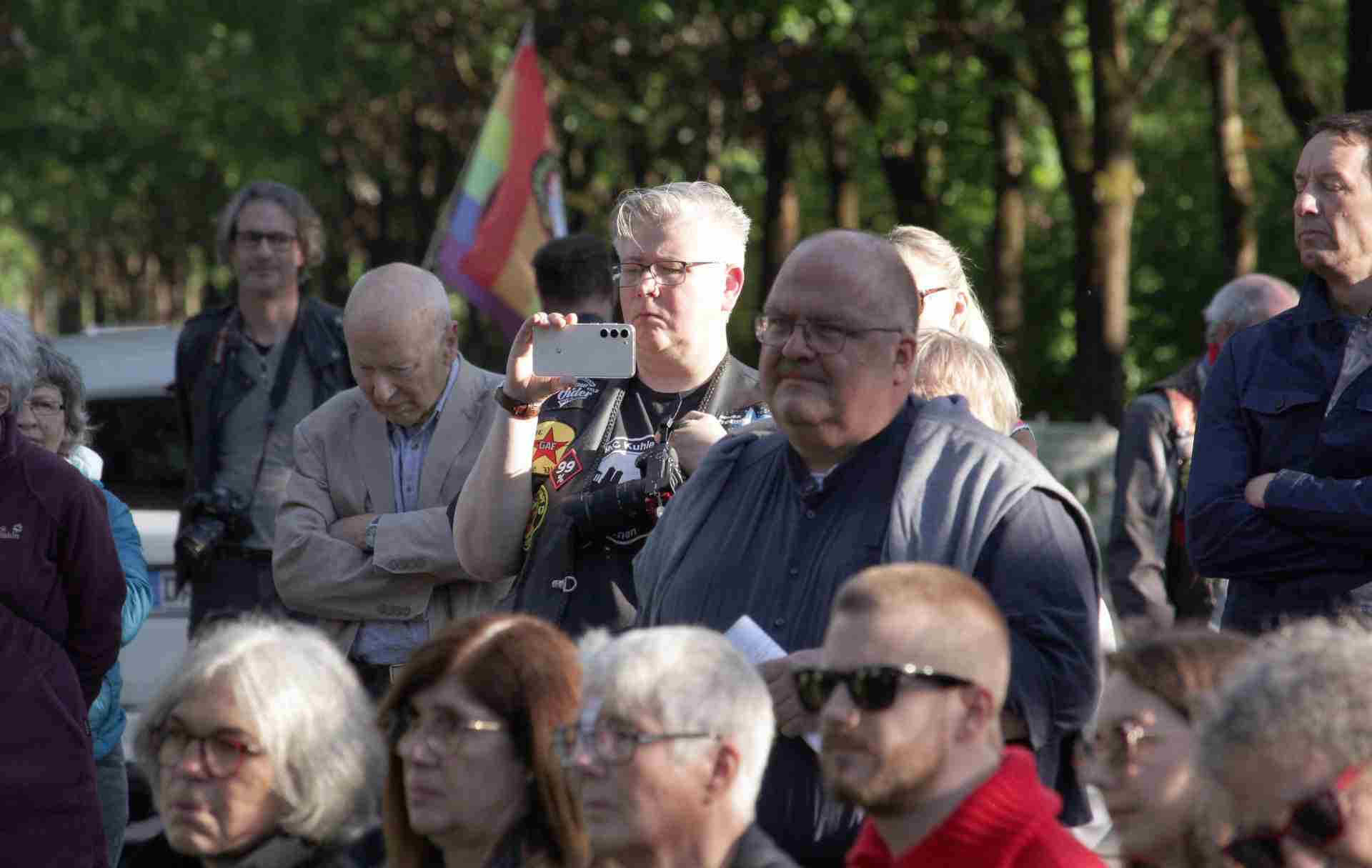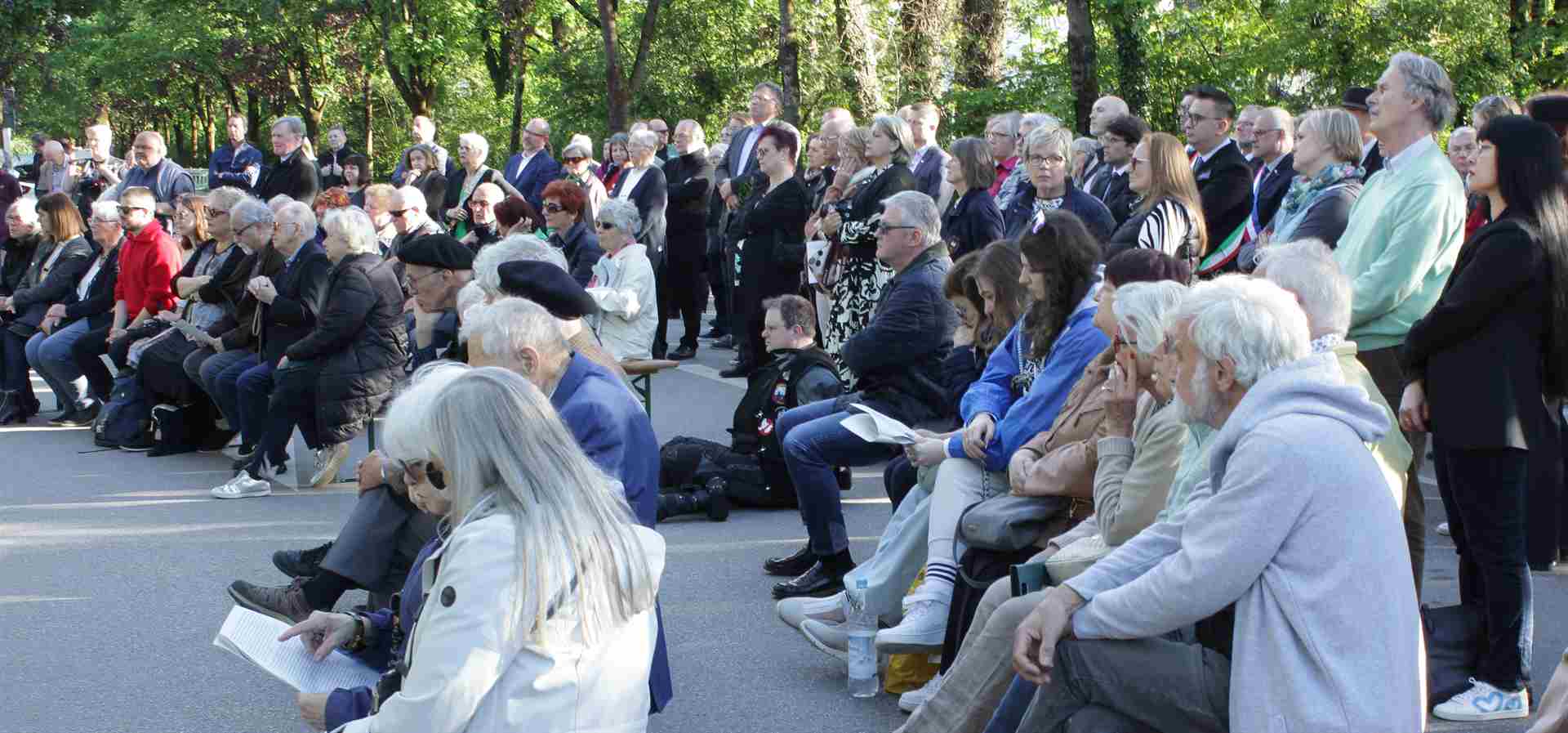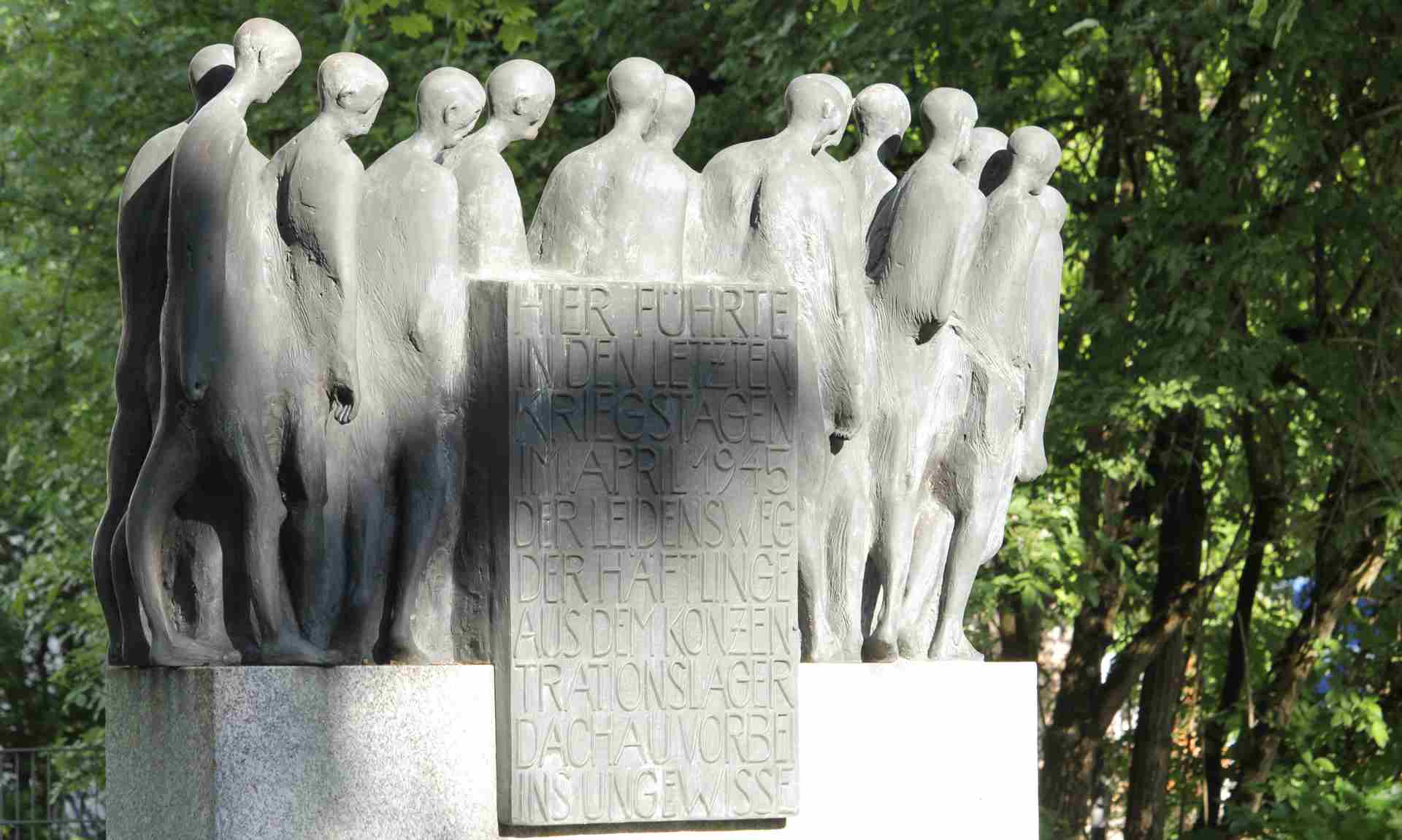Speech by Marine Charbonneau, at the memorial for the victims of the death march, 4 May 2024
‘Eight months of voluntary service have changed my perspective. From now on, my focus is on the future, on future generations. History lessons alone are not enough’
Good evening. Thank you all for coming here today to the memorial for the victims of the death march.
My name is Marine Charbonneau, I'm from France and I'm here for a year as a volunteer with Aktion Sühnezeichen Friedensdienste at the Protestant Church of Reconciliation at the Dachau Concentration Camp Memorial.
When I arrived here in September 2023, I already had a good knowledge of the history of National Socialism and the German occupation of my home country. But eight months of voluntary service changed my perspective. From now on, my focus is on the future, on future generations. History lessons alone are not enough The memorial book project for the prisoners of the Dachau concentration camp made me realise this need to teach young people more than just historical facts in order to understand the events; you have to link them to the present and the future in order to prevent the same atrocities from happening again, in whatever form.
‘The words “never again” resonate with greater force in our fragile world. But for this resolution to be implemented, it is crucial that we first understand our ancestors' past. It was through my involvement in the Book of Remembrance project for the prisoners of the Dachau concentration camp that I really grasped this need to teach young people more than just historical facts, but also the story of those who survived and those who were murdered in the concentration camps or on the death marches of 26 April 1945. More than 10,000 of them must have taken part in these death marches, and their testimonies provide us with valuable lessons to teach us and make us aware of the dangers that lie ahead. Thank you very much, Mr Abba Naor, for addressing us just now as a survivor of the death march.
The biography of a French prisoner at Dachau, Jean-René Lafond, made a particularly strong impression on me. As a volunteer, I had the opportunity to study his story closely. A survivor of the camp, he was liberated in April 1945. Every year until his death, he organised a commemorative party for his fellow Resistance fighters in the Gironde region. Why did he do this? So as not to forget them, but also to raise the awareness of new generations so that they would not allow such massacres to happen again. His approach was imbued with a deep desire to preserve the collective memory and promote peace, just as we continue to do today at this place of commemoration of the Death March.
Before coming here to Dachau, I asked myself about my own contribution to our duty to remember. How can I commit myself to preventing human rights violations and atrocities in the future? What are the current challenges and how can we respond by learning from the past? How can we strengthen a fragile peace and go beyond the simple lessons about the rise of Nazism in Germany, the resistance, the German occupation or collaboration that I studied so often at school and university?
It was by immersing ourselves in the personal accounts of the prisoners of the Dachau concentration camp, as well as in the testimonies of the inmates forced to take part in the death marches through small villages and towns, that these questions took on their full meaning. How could it have come to this? How can we ensure that this place of remembrance remains a place of remembrance forever, and that it does not become a place of suffering once again? How can we keep our eyes open and attentive to a world that wants to lull us to sleep? How can we fight against passivity?
Around 41,500 inmates of the Dachau concentration camp were not lucky enough to survive the horrors of the Nazis. Today, in front of this memorial dedicated to the victims of the death marches, we remember their suffering, but also their courage. How can one human being come to regard another human being not as a human being, but as a worthless thing? These are crucial questions. As a French woman, I am proud to pay tribute to the victims of Nazism even in another country. This is even more significant. Today, on 4 May 2024, I can express myself freely in Germany. This freedom would have been unthinkable in our dark past when our two countries were in conflict. But our union today fosters our common strength. This association allows me, as a European volunteer, to contribute in my own way by paying tribute today with you to all the victims of Nazism.
I'd like to share part of the personal story that led me here today. My maternal grandmother, always curious and open-minded, encouraged me throughout my life. It was thanks to her that I developed a deep interest in Germany. Her look beyond the stereotypes of her time inspired me to explore and understand the complexity of the world. My ancestor, born in 1815, was German, which no doubt strengthened this bond. Today, I'm a European volunteer in Dachau, and I'm deeply grateful to my grandmother for passing on this open-mindedness to me. My grandmother helped me to understand from an early age that not all Germans were Nazis, just as not all French people were Resistance fighters. The world is much more complex than that.
Today, I wish to offer my light, my love and my kindness to all the former prisoners of Dachau, to all those who perished on the paths of the death marches, and to their families. As Dachau survivor Max Mannheimer said, ‘You are not responsible for what happened, but you are responsible for never letting it happen again.’ The ‘never again’ was valid yesterday. The ‘never again’ is valid today, but above all: the ‘never again’ will be valid tomorrow.








